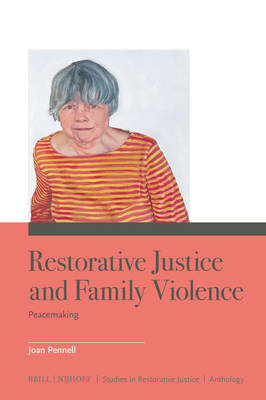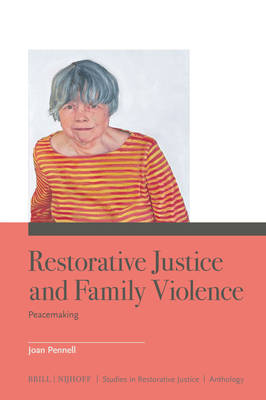
Je cadeautjes zeker op tijd in huis hebben voor de feestdagen? Kom langs in onze winkels en vind het perfecte geschenk!
- Afhalen na 1 uur in een winkel met voorraad
- Gratis thuislevering in België vanaf € 30
- Ruim aanbod met 7 miljoen producten
Je cadeautjes zeker op tijd in huis hebben voor de feestdagen? Kom langs in onze winkels en vind het perfecte geschenk!
- Afhalen na 1 uur in een winkel met voorraad
- Gratis thuislevering in België vanaf € 30
- Ruim aanbod met 7 miljoen producten
Zoeken
Omschrijving
By engaging families in taking charge of their affairs, restorative justice can reverse family violence. But the expansion of restorative programming into family violence is stymied by fears of setting family members at risk and heightening agency liability if harm results. How does this anthology counter these fears?
In response, it provides two decades of studies documenting successes of a restorative approach with gendered and intergenerational violence. It offers feminist frameworks to explain how these successes are achieved. And finally, the author turns to cultural and religious messages from her own upbringing as a Quaker (Religious Society of Friends) to explain why a restorative approach makes lasting and just peace in homes. The aim is to encourage others to identify such principles in their own backgrounds to safely and confidently expand the use of restorative programming to safeguard children and adults in the home.
In response, it provides two decades of studies documenting successes of a restorative approach with gendered and intergenerational violence. It offers feminist frameworks to explain how these successes are achieved. And finally, the author turns to cultural and religious messages from her own upbringing as a Quaker (Religious Society of Friends) to explain why a restorative approach makes lasting and just peace in homes. The aim is to encourage others to identify such principles in their own backgrounds to safely and confidently expand the use of restorative programming to safeguard children and adults in the home.
Specificaties
Betrokkenen
- Auteur(s):
- Uitgeverij:
Inhoud
- Aantal bladzijden:
- 352
- Taal:
- Engels
- Reeks:
- Reeksnummer:
- nr. 9
Eigenschappen
- Productcode (EAN):
- 9789004729797
- Verschijningsdatum:
- 18/09/2025
- Uitvoering:
- Hardcover
- Formaat:
- Genaaid
- Afmetingen:
- 155 mm x 235 mm
- Gewicht:
- 666 g

Alleen bij Standaard Boekhandel
+ 706 punten op je klantenkaart van Standaard Boekhandel
Beoordelingen
We publiceren alleen reviews die voldoen aan de voorwaarden voor reviews. Bekijk onze voorwaarden voor reviews.









